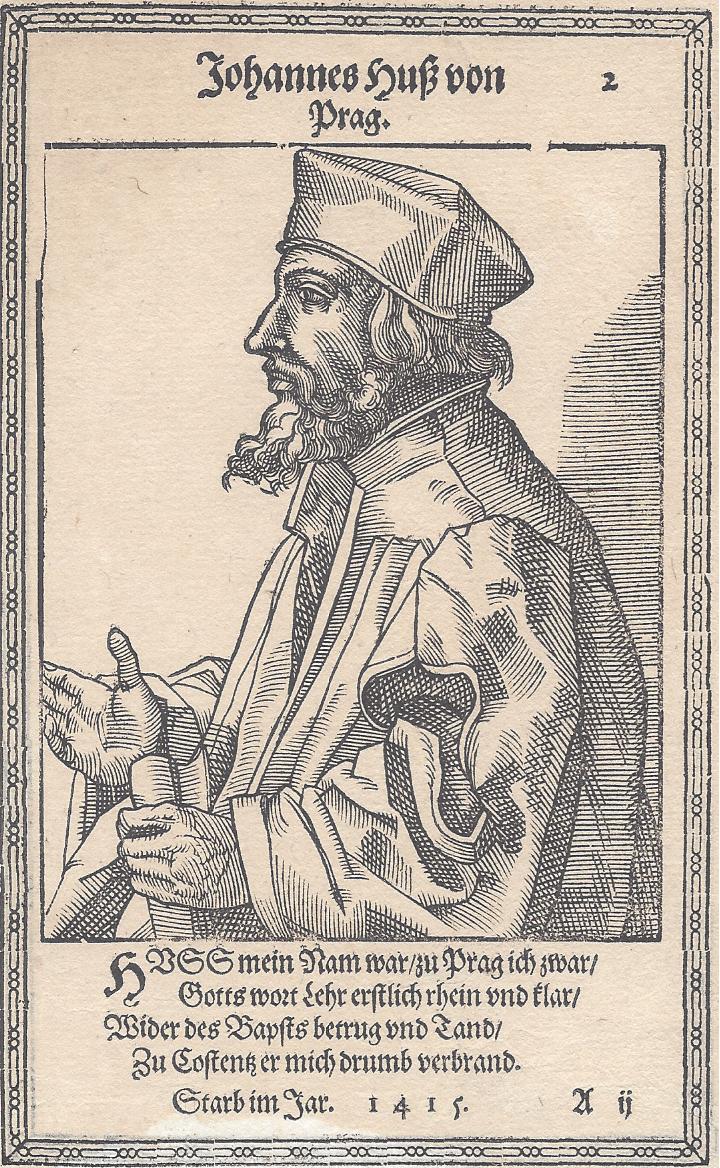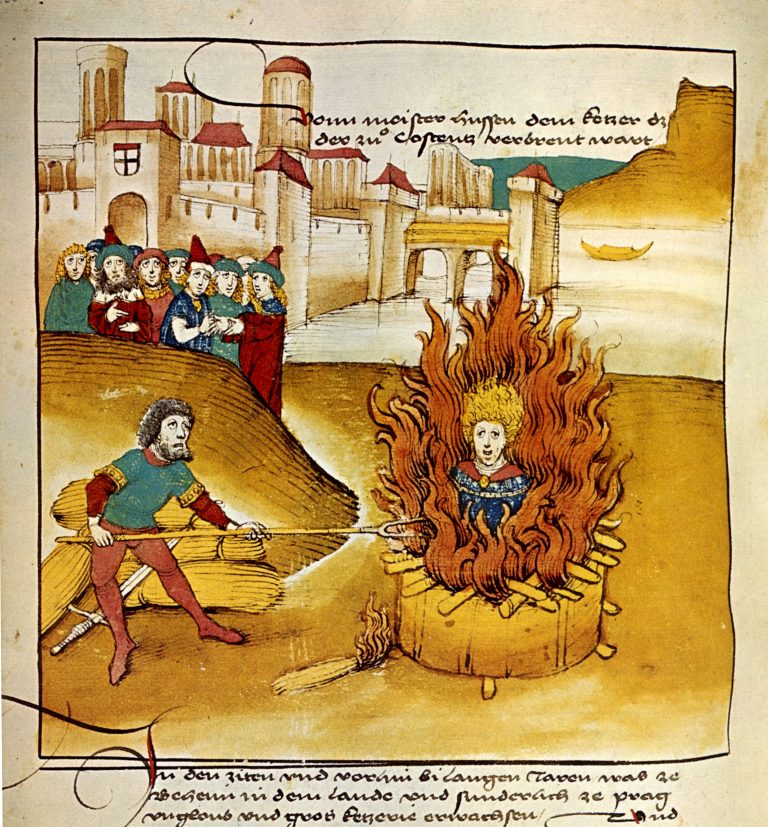From Wikipedia:
At the place of execution, he knelt down, spread out his hands, and prayed aloud. The executioner undressed Hus and tied his hands behind his back with ropes, and bound his neck with a chain to a stake around which wood and straw had been piled up so that it covered him to the neck. At the last moment, the imperial marshal, von Pappenheim, in the presence of the Count Palatine, asked Hus to recant and thus save his own life. Hus declined, stating:
God is my witness that the things charged against me I never preached. In the same truth of the Gospel which I have written, taught, and preached, drawing upon the sayings and positions of the holy doctors, I am ready to die today.[19]
Anecdotally, it has been claimed that the executioners had trouble intensifying the fire. An old woman then came to the stake and threw a relatively small amount of brushwood on it. Upon seeing her act, a suffering Hus then exclaimed, “O Sancta Simplicitas!“. The phrase’s Czech equivalent, “Svatá prostota!” (vocative form: “Svatá prostoto!“, Translated “Holy simplicity!“) is still used today when commenting on a person’s foolish action coming from the belief that he or she is doing something righteous.[citation needed] It is said that when he was about to expire, he cried out, “Christ, son of the Living God, have mercy on us!” (a variant of the Jesus Prayer). Hus’s ashes were later thrown into the Rhine River as a means of preventing the veneration of his remains.
Featured Image Credit: Gortyna, CC BY-SA 3.0 <https://creativecommons.org/licenses/by-sa/3.0>, via Wikimedia Commons
Related
Sorry, no records were found. Please adjust your search criteria and try again.
Sorry, unable to load the Maps API.


